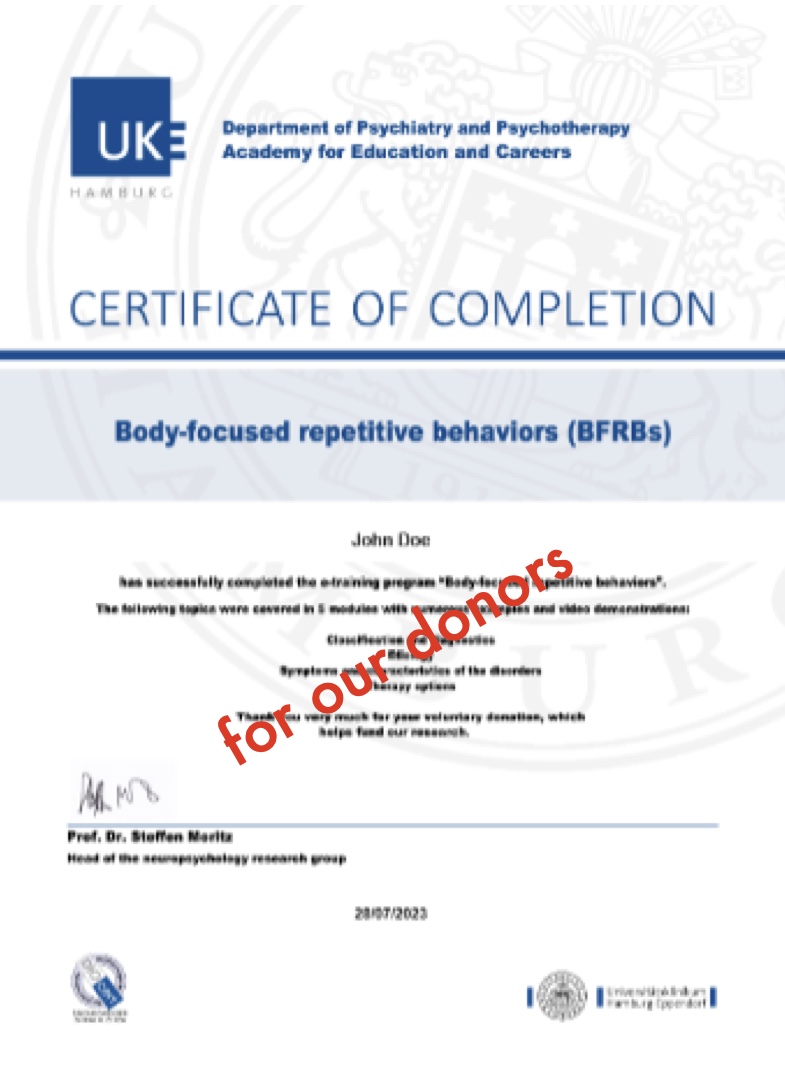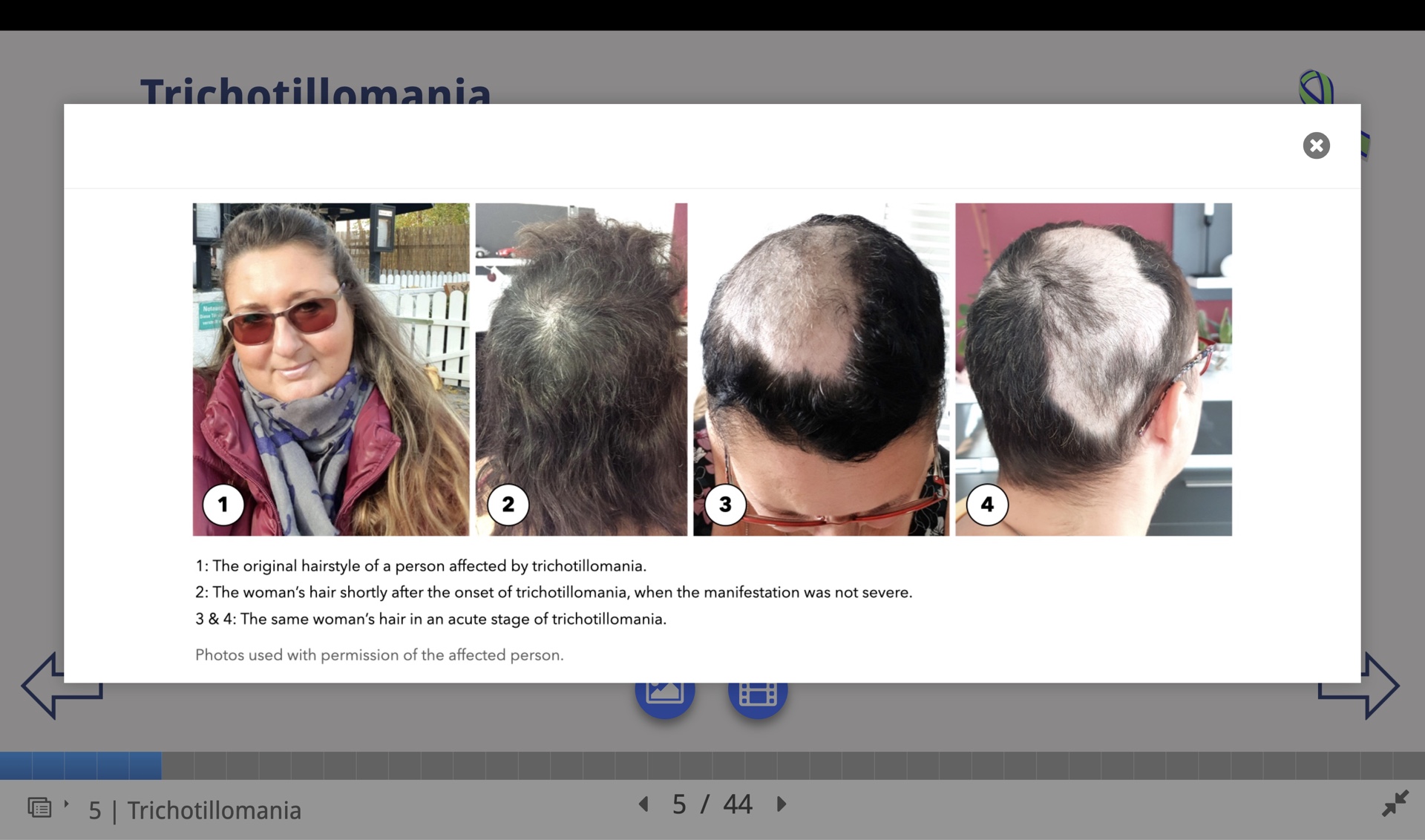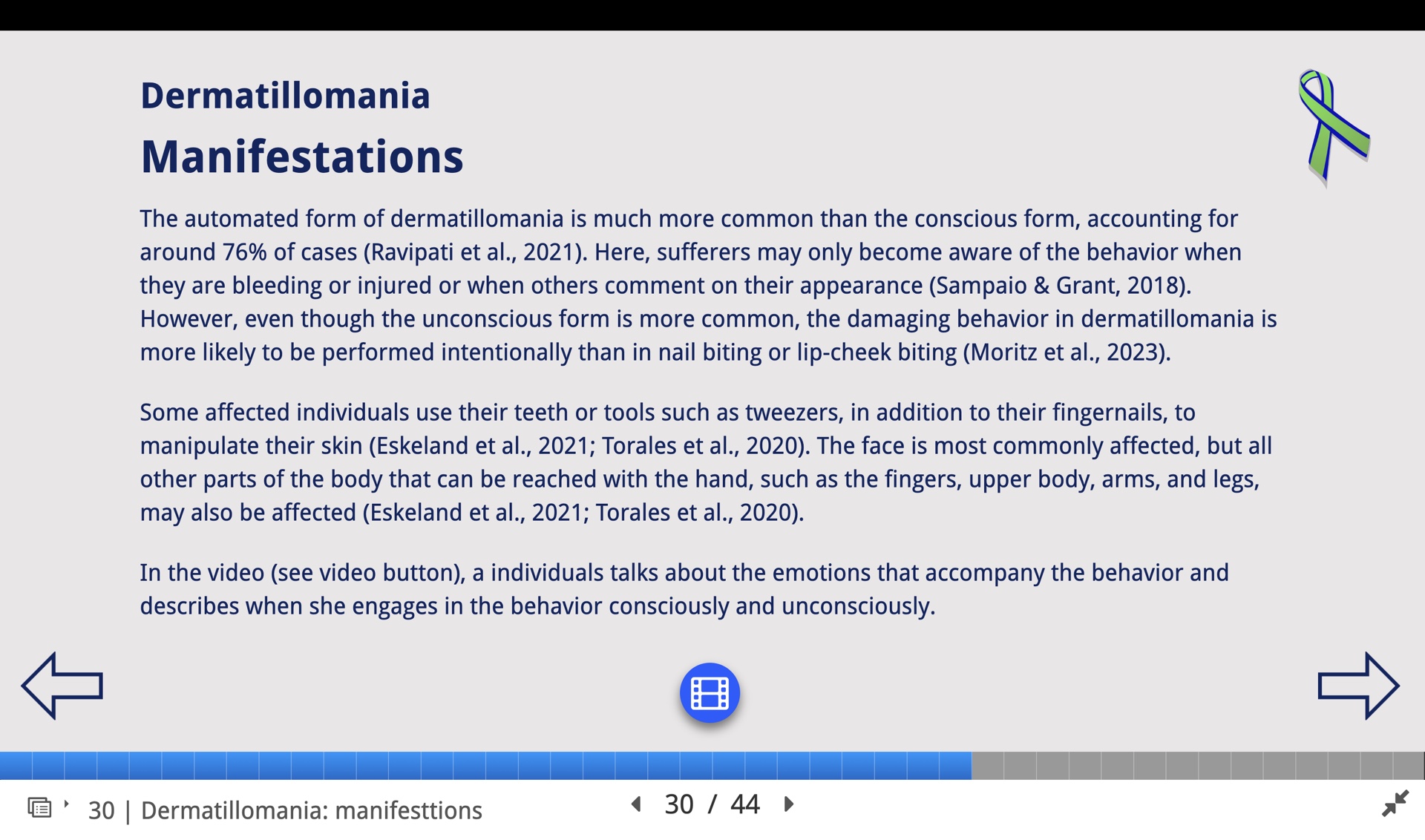Certified Online Training on Body-Focused Repetitive Behaviors (BFRBs) such as Trichotillomania, Onychophagia, and Skin Picking
Background
Excessive nail biting (onychophagia) and pulling out one’s own hair (trichotillomania) are examples of conditions categorized as body-focused repetitive behaviors (often abbreviated as BFRBs). These and other forms of this often stereotypical, excessive self-care behavior frequently result in high levels of physical harm (e.g., scars, problems with growth of hair, skin, and nails; jaw deformities) as well as psychological consequences (e.g., shame, social avoidance, guilt). Despite the large number of people affected, few low-threshold therapeutic approaches are currently available. Therefore, we developed this online training course to improve knowledge about BFRBs and evidence-based therapy options. The course is aimed at therapists as well as those affected by BFRBs and their family members.
This online training is recommended for both practitioners and affected persons.
Those who complete the training and pass the test will receive the official certificate shown below.

Certification and Requested Donation
After completing the training, you can take a test to assess your knowledge. If you pass, you will receive a certificate confirming your completion.
We kindly ask for a donation of 80€/$80 for the online training. If you are interested in taking the training but cannot afford this amount, send an e-mail to moritz@uke.de (Steffen Moritz). Please click on the following link to make your donation: donate (*). You can also donate using PayPal via this secure online portal: donate via Betterplace. You will receive an official receipt for your donation.
(*) Please note that the transaction will be processed through a German bank. In Germany and most European countries, a comma is used as a decimal separator (e.g., 100,00€), whereas in the United States and other countries, a point is used (e.g., 100,00€ is equivalent to 100€). For more information, see https://en.wikipedia.org/wiki/Decimal_separator
You can find more information on BFRBs here: https://www.free-from-bfrb.org
For an e-learning on metacognitive training (MCT) for psychosis, please click here: www.uke.de/e-mct (MCT for depression: www.uke.de/e-dmct)
What you will learn
The aim of the online training is to give you a comprehensive understanding of body-focused repetitive behaviors. After completing the training, you will
- know the most important symptoms of BFRBs, as well as prevalence rates and somatic complications;
- know how BFRBs are categorized in the DSM-5, ICD-10, and ICD-11 classification systems;
- know about scales for detecting and differentiating the individual disorders (e.g., the Generic BFRB Scale-8) and have access to materials for making a diagnosis;
- be familiar with various explanations of the development and maintenance of BFRBs; and
- know about different therapy options that can be successfully applied to BFRBs and have access to treatment materials.
The online training consists of five learning units (45–60 minutes each) that offer many practical tips. The information is presented using text, pictures, videos of affected persons talking about their experiences, and other helpful material on the diagnosis and treatment of BFRBs. Here are some examples from the learning unit that addresses the phenomenology of BFRBs:
Technical requirements
We recommend that you use Mozilla Firefox for this e-learning as other browsers may cause problems with some features. In order to ensure the best possible presentation of the content, we recommend always working on the e-learning in full-screen mode.
Registration
To register, simply click here. We will process your request within four days (usually less). Please check your spam folder regularly as automatically generated emails are rejected by some email service providers.
Developers of this e-training (in alphabetic order)
- Abud Alfawal
- Tana Gabbert
- Dominik Grudzień
- Luca Hoyer
- Kathy McKay
- Franziska Mißmann
- Prof. Dr. Steffen Moritz
- Stella Schmotz
- Arne Sibilis
- Dr. Ruth Veckenstedt


